
As the series of articles "Unleashing the gold market to let capital flow into the economy " published by Lao Dong, choosing the easy path in managing the gold market with administrative tools and orders such as Decree 24/2012/ND-CP, or following the market mechanism, in accordance with international practices, ensuring benefits for all parties is not a simple problem for State management agencies.
At the meeting on the afternoon of March 28, Deputy Prime Minister Le Minh Khai and experts and members of the National Financial and Monetary Policy Advisory Council agreed to propose removing the monopoly on SJC gold bars and many important mechanisms in Decree 24.
As a member of the council, Associate Professor Dr. Nguyen Thi Mui assessed that the State Bank should only manage gold with monetary elements, which would be reasonable and effective. However, for the market to operate sustainably and harmonize the interests of all parties, it is still necessary to refer to the experience of countries around the world .
According to Dr. Can Van Luc - Chief Economist, Director of BIDV Training and Research Institute, three things that should be done are to abolish the monopoly on importing and producing gold bars; abolish the monopoly on the SJC brand because it has given them an undeserved monopoly; and allow some businesses to import gold bars if they meet enough criteria.
He emphasized that it is necessary to firmly end gold lending - the core cause of the goldization of the economy. Research from 4 markets: India, Thailand, China, Türkiye, they had gold trading floors but 25 years ago. Now they have switched to transactions mainly through banks to reduce cash payments. But in the long term, Mr. Luc said that we should encourage the development of gold derivatives (belonging to commodity derivatives). This field should be managed by the Ministry of Finance instead of the current Ministry of Industry and Trade.
The expert also pointed out the need for a clear division of roles. The task of managing the gold market is currently assigned to the State Bank, but it is not appropriate. In Thailand, the Securities and Exchange Commission of Thailand is responsible for gold futures products (gold derivatives). The Ministry of Finance, specifically the Customs Department, is responsible for gold import and export. The Central Bank of Thailand is responsible for gold transactions in foreign currencies. The Ministry of Commerce (in Vietnam, the Ministry of Industry and Trade) will manage gold shops and domestic gold transactions.
Prof. Dr. Tran Ngoc Tho - Ho Chi Minh City University of Economics - said that in India, after many failures, they have set 5 fixed targets including: making the gold industry account for 1.5 - 3% of GDP in 5 years; increasing gold export revenue; increasing employment in the gold industry to 6 - 10 million; not causing a current account deficit. The Central Bank of India, the Ministry of Finance and related ministries implement policies, import and export taxes... to operate the gold trading floor.
In China, the People's Bank of China manages the market for gold and gold products. Import and export regulations are coordinated with the General Administration of Customs. Money flows are controlled.
In Turkey, however, it has not been as successful. The country's central bank initially monopolized the gold market, then liberalized it, licensing the exchange. However, macroeconomic instability at that time caused gold prices to rise. The central bank then banned imports, causing the gold market to experience price fluctuations...
Source


![[Photo] Unique architecture of the deepest metro station in France](https://vphoto.vietnam.vn/thumb/1200x675/vietnam/resource/IMAGE/2025/11/14/1763107592365_ga-sau-nhat-nuoc-phap-duy-1-6403-jpg.webp)





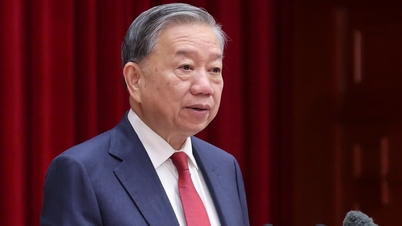









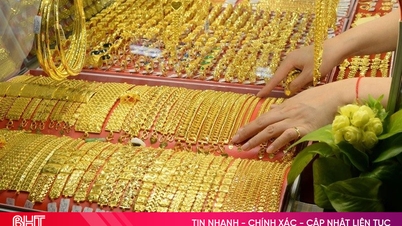














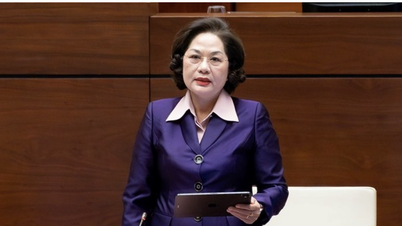

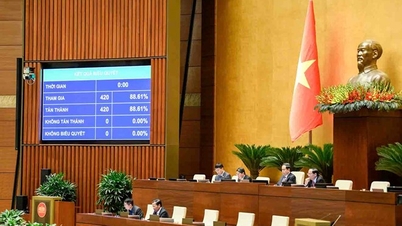
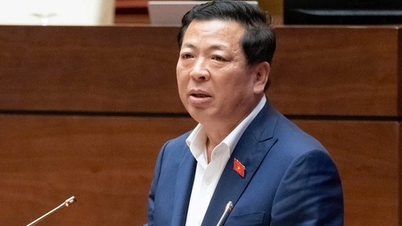


![[Photo] Special class in Tra Linh](https://vphoto.vietnam.vn/thumb/1200x675/vietnam/resource/IMAGE/2025/11/14/1763078485441_ndo_br_lop-hoc-7-jpg.webp)
![[Photo] Unique art of painting Tuong masks](https://vphoto.vietnam.vn/thumb/1200x675/vietnam/resource/IMAGE/2025/11/14/1763094089301_ndo_br_1-jpg.webp)






































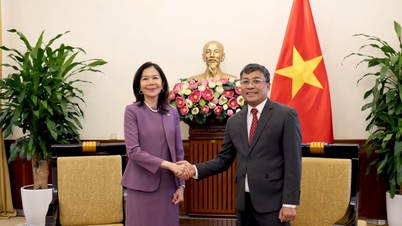



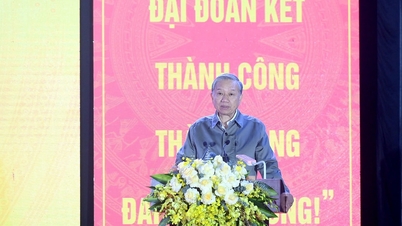




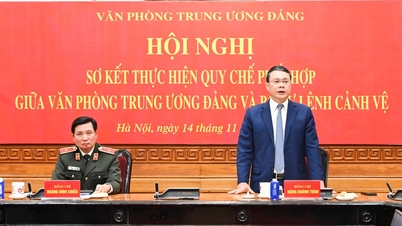
























Comment (0)